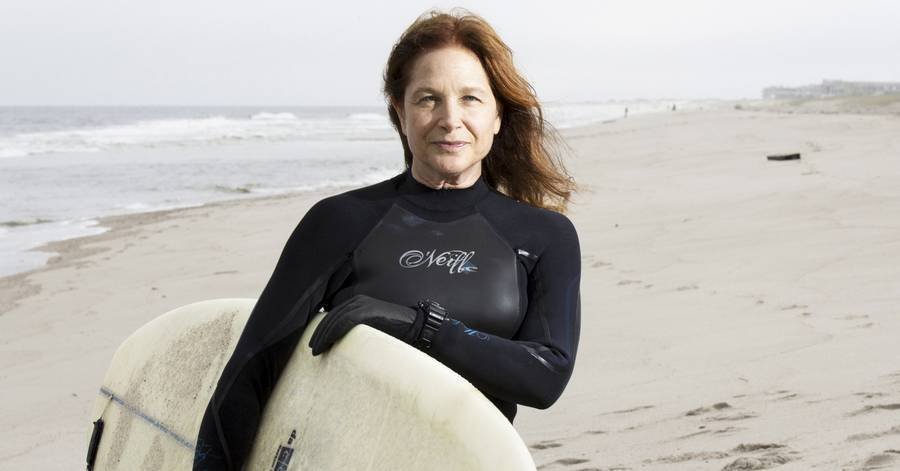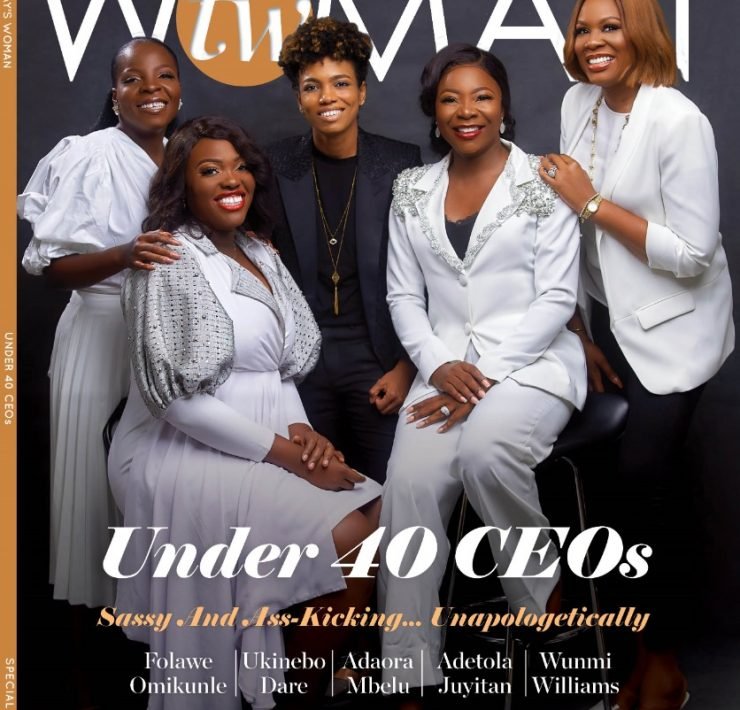The New Rules of Middle Age, Written by Women

As a new wave of women step into their mid-centuries, books re-imagining female midlife are striking a chord. ‘We’re not going to do our 50s the way everyone’s telling us we’re supposed to,’ author Candace Bushnell says.
Darcey Steinke knew she was going to write a book about menopause when she read that two of the only creatures to go through it are human women and killer whales. Instead of disappearing into the murky depths, she learned, the whales become leaders of their pods.
“I shouldn’t be depressed this is happening,” the 57-year-old author recalled telling herself about her new stage of life as she began writing “Flash Count Diary: Menopause and the Vindication of Natural Life,” out next month. “There are so many boring ideas that are not helpful. Let’s talk about how powerful the transition is.”
As a new wave of women step into their mid-centuries and beyond, they’re looking to chart a course for the second part of their lives that looks different from the one their mothers knew.
This spring and summer, books by women look at midlife as a time to start over, take risks and view themselves in the world as anything but invisible.
“I definitely think the cultural dialogue has opened up,” said Lauren Wein, executive editor at Houghton Mifflin Harcourt. “A lot of people really need a template for this time period.”
It’s a striking moment of exposure for women over 50, who are taking commanding roles across American culture. Melinda Gates, 54, hit best-seller lists this spring with her debut book “The Moment of Lift: How Empowering Women Changes the World.” Michelle Obama, at 55, has been filling arenas for six months on her speaking tour for her blockbuster memoir, “Becoming.” Anchor Gayle King, 64, and CBS News president Susan Zirinsky, 67, are flexing their muscles in morning TV, and Lockheed Martin CEO Marillyn A. Hewson, at 65, is a regular on magazine “most powerful” lists.
“It just seems like a new, zeitgeisty time when women are saying, ‘We’re not going to do our 50s the way everyone’s telling us we’re supposed to,’” said “Sex and the City” author Candace Bushnell, 60, who returns in August with the autobiographical novel, “Is There Still Sex in the City?” (Answer: Yes.)
Some of these books arrive thanks to new demand from women readers seeking frank accounts by contemporaries grappling with midlife, said longtime editor Sarah Crichton, who recently left a career at Farrar, Straus, and Giroux.
All the anger coming from women over the last couple of years is the result of too many secrets, too many unshared experiences and not enough collective effort to push women forward,” she said, adding that the books combat some of the lasting stigmas around women and aging.
In her debut memoir out in June, “The Beautiful No: And Other Tales of Trial, Transcendence, and Transformation,” former Oprah Winfrey Network co-president Sheri Salata describes aging out of the 25 to 54 bracket, which the TV industry has long called the “sweet spot” for advertisers. “All around us, the message is the same: You’re done,” writes Ms. Salata.
At first, it seems almost rude to ask for more. But the 59-year-old onetime workaholic doesn’t feel done, and instead decides to devote all her energy to following a “happiness compass” that guides her midlife reinvention. “In this day and age, if you start taking care of yourself, it’s not unreasonable to think that the 50s might truly be halfway up the mountain,” she writes. “This may be the middle of your life, not the beginning of the long goodbye.”
Ms. Salata benefited from a female gatekeeper at HarperCollins who saw the potential in her message: Karen Rinaldi, Ms. Salata’s editor and founder of the imprint Harper Wave. “This woman—she is me,” said Ms. Salata. “We instantly recognized each other as soul mates.”
This week, Ms. Rinaldi releases her own midlife manifesto, built on her decision to learn surfing in her 40s. “(It’s Great to) Suck at Something: The Unexpected Joy of Wiping Out and What It Can Teach Us About Patience, Resilience, and the Stuff That Really Matters,” from Simon & Schuster imprint Atria Books, uses her ocean challenges to show how joy and growth come from risking failure and letting go of perfectionism.
The 57-year-old publishing executive at HarperCollins, which like The Wall Street Journal is owned by News Corp., said she could not have written this book even a decade ago—it took those extra years to feel comfortable admitting to her weaknesses and seeing what she could learn from them. “In the tenacity that I had to find to keep surfing, despite how hard it was and how bad I was at it, I forgave myself,” she said. “I realized, ‘Oh, this applies to basically everything that I do and we all do.’ ”
Ms. Rinaldi and some others writing from the trenches of middle age are aiming for a general audience. In her new work, “Maybe You Should Talk to Someone: A Therapist, Her Therapist, and Our Lives Revealed,” Los Angeles therapist Lori Gottlieb explores not just her own struggles after a breakup in her mid-40s but the issues of her male and female patients. The book is a best seller.
One of the best-known modern bibles on aging, “Passages” by Gail Sheehy, is itself middle-aged at 43 years old. In the decades since it came out, women have written other best sellers on life’s later stages, from Nora Ephron’s “I Feel Bad About My Neck: And Other Thoughts on Being a Woman” in 2006 to Roz Chast’s 2014 graphic memoir about caring for her elderly parents, “Can’t We Talk About Something More Pleasant?”
As for Ms. Steinke, who argues in her book on menopause that a mix of ageism and misogyny has isolated older women, the natural world continues to offer inspiration. Several years ago, while sea kayaking off Washington state, Ms. Steinke saw what a guide told her was the oldest-known killer whale on Earth, an orca named Granny believed by some experts to be 105 when she died in 2016. Ms. Steinke still thinks about this matriarch and others like her.
“These whales lead their pods,” she said. “Nobody offers them hormone therapy. They just lead.”
Source – Wall Street Journal
Sign Up to Our Newsletter
Get notified about exclusive offers every week!











